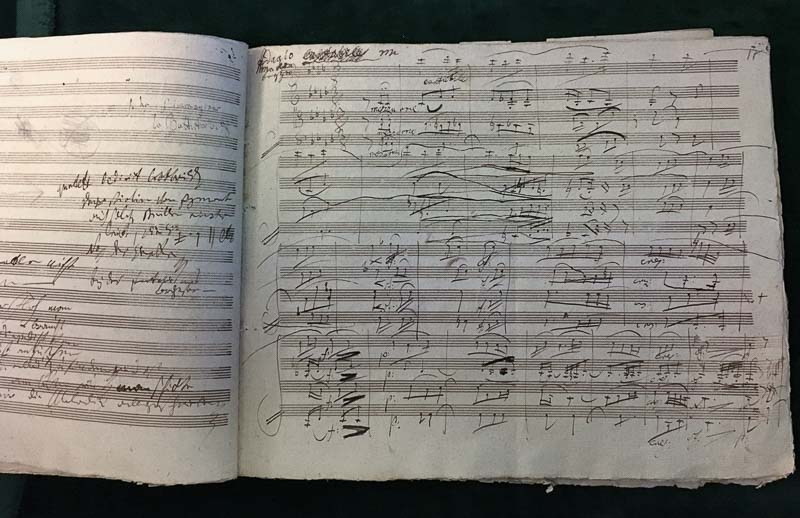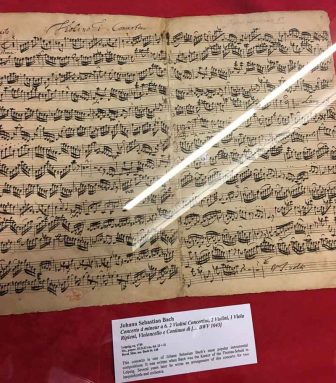Once upon a time – but whether in the time past or time to come, is a matter of little or no moment – this wide world had become so overburdened with an accumulation of worn-out trumpery, that the inhabitants determined to rid themselves of it by a general bonfire. The site fixed upon, at the representation of the Insurance Companies, and as being as central a spot as any other on the globe, was one of the broadest prairies of the West, where no human habitation would be endangered by the flames, and where a vast assemblage of spectators might commodiously admire the show. Having a taste for sights of this kind, and imagining, likewise, that the illumination of the bonfire might reveal some profundity of moral truth, heretofore hidden in mist or darkness, I made it convenient to journey thither and be present. At my arrival, although the heap of condemned rubbish was as yet comparatively small, the torch had already been applied. Amid that boundless plain, in the dusk of the evening, like a far-off star alone in the firmament, there was merely visible one tremulous gleam, whence none could have anticipated so fierce a blaze as was destined to ensue. With every moment, however, there came foot-travelers, women holding up their aprons, men on horseback, wheelbarrows, lumbering baggage wagons, and other vehicles, great and small, and from far and near, laden with articles that were judged fit for nothing but to be burnt.
“What materials have been used to kindle the flame?” inquired I of a bystander, for I was desirous of knowing the whole process of the affair, from beginning to end.
The person whom I addressed was a grave man, fifty years old, or thereabout, who had evidently come thither as a looker-on; he struck me immediately as having weighed for himself the true value of life and its circumstances, and therefore as feeling little personal interest in whatever judgment the world might form of them. Before answering my question, he looked me in the face, by the kindling light of the fire.
“Oh, some very dry combustibles,” replied he, “and extremely suitable to the purpose – no other, in fact, than yesterday’s newspapers, last month’s magazines, and last year’s withered leaves. Here, now, comes some antiquated trash, that will take fire like a handful of shavings.”
As he spoke, some rough-looking men advanced to the verge of the bonfire, and threw in, as it appeared, all the rubbish of the Herald’s Office; the blazonry of coat-armor; the crests and devices of illustrious families; pedigrees that extended back, like lines of light, into the mist of the dark ages; together with stars, garters, and embroidered collars; each of which, as paltry a bauble as it might appear to the uninstructed eye, had once possessed vast significance, and was still, in truth, reckoned among the most precious of moral or material facts, by the worshippers of the gorgeous past. Mingled with this confused heap, which was tossed into the flames by armsfull at once, were innumerable badges of knighthood; comprising those of all the European sovereignties, and Napoleon’s decoration of the Legion of Honor, the ribands of which were entangled with those of the ancient order of St. Louis. There, too, were the medals of our own society of Cincinnati, by means of which, as history tells us, an order of hereditary knights came near being constituted out of the king-quellers of the Revolution. And besides, there were the patents of nobility of German counts and barons, Spanish grandees, and English peers, from the worm-eaten instruments signed by William the Conqueror, down to the bran-new parchment of the latest lord, who has received his honors from the fair hand of Victoria.
At sight of these dense volumes of smoke, mingled with vivid jets of flame that gushed and eddied forth from this immense pile of earthly distinctions, the multitude of plebeian spectators set up a joyous shout, and clapt their hands with an emphasis that made the welkin echo. That was their moment of triumph, achieved after long ages, over creatures of the same clay and the same spiritual infirmities, who had dared to assume the privileges due only to Heaven’s better workmanship. But now there rushed towards the blazing heap a gray-haired man, of stately presence, wearing a coat from the breast of which a star, or other badge of rank, seemed to have been forcibly wrenched away. He had not the tokens of intellectual power in his face; but still there was the demeanor – the habitual, and almost native dignity – of one who had been born to the idea of his own social superiority, and had never felt it questioned, till that moment.
“People,” cried he, gazing at the ruin of what was dearest to his eyes with grief and wonder, but nevertheless, with a degree of stateliness – “people, what have you done! This fire is consuming all that marked your advance from barbarism, or that could have prevented your relapse thither. We – the men of the privileged orders – were those who kept alive, from age to age, the old chivalrous spirit; the gentle and generous thought; the higher, the purer, the more refined and delicate life! With the nobles, too, you cast off the poet, the painter, the sculptor – all the beautiful arts; for we were their patrons and created the atmosphere in which they flourish. In abolishing the majestic distinctions of rank, society loses not only its grace, but its steadfastness –”
More he would doubtless have spoken; but here there arose an outcry, sportive, contemptuous, and indignant, that altogether drowned the appeal of the fallen nobleman, insomuch that, casting one look of despair at his own half-burnt pedigree, he shrunk back into the crowd, glad to shelter himself under his new-found insignificance.
“Let him thank his stars that we have not flung him into the same fire!” shouted a rude figure, spurning the embers with his foot. “And, henceforth, let no man dare to show a piece of musty parchment as his warrant for lording it over his fellows! If he have strength of arm, well and good; it is one species of superiority. If he have wit, wisdom, courage, force of character, let these attributes do for him what they may. But, from this day forward, no mortal must hope for place and consideration by reckoning up the moldy bones of his ancestors! That nonsense is done away.”
“And in good time,” remarked the grave observer by my side – in a low voice however – “if no worse nonsense come in its place. But, at all events, this species of nonsense has fairly lived out its life.”
There was little space to muse or moralize over the embers of this time-honored rubbish; for, before it was half burnt out, there came another multitude from beyond the sea, bearing the purple robes of royalty, and the crowns, globes, and scepters of emperors and kings. All these had been condemned as useless baubles; playthings, at best, fit only for the infancy of the world, or rods to govern and chastise it in its nonage; but with which universal manhood, at its full-grown stature, could no longer brook to be insulted. Into such contempt had these regal insignia now fallen, that the gilded crown and tinseled robes of the player-king, from Drury Lane Theatre, had been thrown in among the rest, doubtless as a mockery of his brother-monarchs on the great stage of the world. It was a strange sight to discern the crown-jewels of England, glowing and flashing in the midst of the fire. Some of them had been delivered down from the time of the Saxon princes; others were purchased with vast revenues, or, perchance, ravished from the dead brows of the native potentates of Hindostan; and the whole now blazed with a dazzling luster, as if a star had fallen in that spot, and been shattered into fragments. The splendor of the ruined monarchy had no reflection, save in those inestimable precious-stones. But enough on this subject! It were but tedious to describe how the Emperor of Austria’s mantle was converted to tinder, and how the posts and pillars of the French throne became a heap of coals, which it was impossible to distinguish from those of any other wood. Let me add, however, that I noticed one of the exiled Poles stirring up the bonfire with the Czar of Russia’s scepter, which he afterwards flung into the flames.
“The smell of singed garments is quite intolerable here,” observed my new acquaintance, as the breeze enveloped us in the smoke of a royal wardrobe. “Let us get to windward, and see what they are doing on the other side of the bonfire.”
We accordingly passed around, and were just in time to witness the arrival of a vast procession of Washingtonians – as the votaries of temperance call themselves now-a-days – accompanied by thousands of the Irish disciples of Father Mathew, with that great apostle at their head. They brought a rich contribution to the bonfire; being nothing less than all the hogsheads and barrels of liquor in the world, which they rolled before them across the prairie.
“Now, my children,” cried Father Mathew, when they reached the verge of the fire – “one shove more, and the work is done! And now let us stand off and see Satan deal with his own liquor!”
Accordingly, having placed their wooden vessels within reach of the flames, the procession stood off at a safe distance, and soon beheld them burst into a blaze that reached the clouds, and threatened to set the sky itself on fire. And well it might. For here was the whole world’s stock of spirituous liquors, which, instead of kindling a frenzied light in the eyes of individual topers as of yore, soared upwards with a bewildering gleam that startled all mankind. It was the aggregate of that fierce fire, which would otherwise have scorched the hearts of millions. Meantime, numberless bottles of precious wine were flung into the blaze; which lapped up the contents as if it loved them, and grew, like other drunkards, the merrier and fiercer for what it quaffed. Never again will the insatiable thirst of the fire-fiend be so pampered! Here were the treasures of famous bon-vivants – liquors that had been tossed on ocean, and mellowed in the sun, and hoarded long in the recesses of the earth –the pale, the gold, the ruddy juice of whatever vineyards were most delicate – the entire vintage of Tokay – all mingling in one stream with the vile fluids of the common pot-house, and contributing to heighten the self-same blaze. And while it rose in a gigantic spire, that seemed to wave against the arch of the firmament, and combine itself with the light of stars, the multitude gave a shout, as if the broad earth were exulting in its deliverance from the curse of ages.
But the joy was not universal. Many deemed that human life would be gloomier than ever, when that brief illumination should sink down. While the reformers were at work, I overheard muttered expostulations from several respectable gentlemen with red noses, and wearing gouty shoes; and a ragged worthy, whose face looked like a hearth where the fire is burnt out, now expressed his discontent more openly and boldly.
“What is this world good for,” said the Last Toper, “now that we can never be jolly any more? What is to comfort the poor man in sorrow and perplexity? – how is he to keep his heart warm against the cold winds of this cheerless earth? – and what do you propose to give him in exchange for the solace that you take away? How are old friends to sit together by the fireside, without a cheerful glass between them? A plague upon your reformation! It is a sad world, a cold world, a selfish world, a low world, not worth an honest fellow’s living in, now that good fellowship is gone for ever!”
This harangue excited great mirth among the bystanders. But, preposterous as was the sentiment, I could not help commiserating the forlorn condition of the Last Toper, whose boon-companions had dwindled away from his side, leaving the poor fellow without a soul to countenance him in sipping his liquor, nor indeed, any liquor to sip. Not that this was quite the true state of the case; for I had observed him, at a critical moment, filch a bottle of fourth-proof brandy that fell beside the bonfire, and hide it in his pocket.
The spirituous and fermented liquors being thus disposed of, the zeal of the reformers next induced them to replenish the fire with all the boxes of tea and bags of coffee in the world. And now came the planters of Virginia, bringing their crops of tobacco. These, being cast upon the heap of inutility, aggregated it to the size of a mountain, and incensed the atmosphere with such potent fragrance that methought we should never draw pure breath again. The present sacrifice seemed to startle the lovers of the weed, more than any that they had hitherto witnessed.
“Well; – they’ve put my pipe out,” said an old gentleman, flinging it into the flames in a pet. “What is this world coming to? Everything rich and racy – all the spice of life – is to be condemned as useless. Now that they have kindled the bonfire, if these nonsensical reformers would fling themselves into it, all would be well enough!”
“Be patient,” responded a staunch conservative; – “it will come to that in the end. They will first fling us in, and finally themselves.”
From the general and systematic measures of reform, I now turned to consider the individual contributions to this memorable bonfire. In many instances these were of a very amusing character. One poor fellow threw in his empty purse, and another a bundle of counterfeit or insolvable bank-notes. Fashionable ladies threw in their last season’s bonnets, together with heaps of ribbons, yellow lace, and much other half-worn milliner’s ware; all of which proved even more evanescent in the fire, than it had been in the fashion. A multitude of lovers of both sexes – discarded maids or bachelors, and couples mutually weary of one another – tossed in bundles of perfumed letters and enamored sonnets. A hack-politician, being deprived of bread by the loss of office, threw in his teeth, which happened to be false ones. The Rev. Sydney Smith – having voyaged across the Atlantic for that sole purpose – came up to the bonfire with a bitter grin, and threw in certain repudiated bonds, fortified though they were with the broad seal of a sovereign state. A little boy of five years old, in the premature manliness of the present epoch, threw in his playthings; a college-graduate, his diploma; an apothecary, ruined by the spread of homeopathy, his whole stock of drugs and medicines; a physician, his library; a parson, his old sermons; and a fine gentleman of the old school, his code of manners, which he had formerly written down for the benefit of the next generation. A widow, resolving on a second marriage, slyly threw in her dead husband’s miniature. A young man, jilted by his mistress, would willingly have flung his own desperate heart into the flames, but could find no means to wrench it out of his bosom. An American author, whose works were neglected by the public, threw his pen and paper into the bonfire, and betook himself to some less discouraging occupation. It somewhat startled me to overhear a number of ladies, highly respectable in appearance, proposing to fling their gowns and petticoats into the flames, and assume the garb, together with the manners, duties, offices, and responsibilities, of the opposite sex.
What favor was accorded to this scheme, I am unable to say; my attention being suddenly drawn to a poor, deceived, and half-delirious girl, who, exclaiming that she was the most worthless thing alive or dead, attempted to cast herself into the fire, amid all that wrecked and broken trumpery of the world. A good man, however, ran to her rescue.
“Patience, my poor girl!” said he, as he drew her back from the fierce embrace of the destroying angel. “Be patient, and abide Heaven’s will. So long as you possess a living soul, all may be restored to its first freshness. These things of matter, and creations of human fantasy, are fit for nothing but to be burnt, when once they have had their day. But your day is Eternity!”
“Yes,” said the wretched girl, whose frenzy seemed now to have sunk down into deep despondency; – “yes; and the sunshine is blotted out of it!”
It was now rumored among the spectators that all the weapons and munitions of war were to be thrown into the bonfire; with the exception of the world’s stock of gunpowder, which, as the safest mode of disposing of it, had already been drowned in the sea. This intelligence seemed to awaken great diversity of opinion. The hopeful philanthropist esteemed it a token that the millennium was already come; while persons of another stamp, in whose view mankind was a breed of bulldogs, prophesied that all the old stoutness, fervor, nobleness, generosity, and magnanimity of the race, would disappear; these qualities, as they affirmed, requiring blood for their nourishment. They comforted themselves, however, in the belief that the proposed abolition of war was impracticable, for any length of time together.
Be that as it might, numberless great guns, whose thunder had long been the voice of battle – the artillery of the Armada, the batteringtrains of Marlborough, and the adverse cannon of Napoleon and Wellington – were trundled into the midst of the fire. By the continual addition of dry combustibles, it had now waxed so intense that neither brass nor iron could withstand it. It was wonderful to behold how these terrible instruments of slaughter melted away like playthings of wax. Then the armies of the earth wheeled around the mighty furnace, with their military music playing triumphant marches, and flung in their muskets and swords. The standard-bearers, likewise, cast one look upward at their banners, all tattered with shot-holes, and inscribed with the names of victorious fields, and, giving them a last flourish on the breeze, they lowered them into the flame, which snatched them upward in its rush toward the clouds. This ceremony being over, the world was left without a single weapon on in its hands, except, possibly, a few old King’s arms and rusty swords, and other trophies of the Revolution, in some of our state-armories. And now the drums were beaten and the trumpets brayed all together, as a prelude to the proclamation of universal and eternal peace, and the announcement that glory was no longer to be won by blood; but that it would henceforth be the contention of the human race, to work out the greatest mutual good; and that beneficence, in the future annals of the earth, would claim the praise of valor. The blessed tidings were accordingly promulgated, and caused infinite rejoicings among those who had stood aghast at the horror and absurdity of war.
But I saw a grim smile pass over the seared visage of a stately old commander – by his war-worn figure and rich military dress, he might have been one of Napoleon’s famous marshals – who, with the rest of the world’s soldiery, had just flung away the sword that had been familiar to his right hand for half-a-century.
“Aye, aye!” grumbled he. “Let them proclaim what they please; but, in the end, we shall find that all this foolery has only made more work for the armorers and cannon-founderies.”
“Why, Sir,” exclaimed I, in astonishment, “do you imagine that the human race will ever so far return on the steps of its past madness, as to weld another sword, or cast another cannon?”
“There will be no need,” observed, with a sneer, one who neither felt benevolence, nor had faith in it. “When Cain wished to slay his brother, he was at no loss for a weapon.”
“We shall see,” replied the veteran commander. – “If I am mistaken, so much the better; but in my opinion – without pretending to philosophize about the matter – the necessity of war lies far deeper than these honest gentlemen suppose. What! Is there a field for all the petty disputes of individuals, and shall there be no great law-court for the settlement of national difficulties? The battle-field is the only court where such suits can be tried!”
“You forget, General,” rejoined I, “that, in this advanced stage of civilization, Reason and Philanthropy combined will constitute just such a tribunal as is requisite.”
“Ah, I had forgotten that, indeed!” said the old warrior, as he limped away.
The fire was now to be replenished with materials that had hitherto been considered of even greater importance to the well-being of society, than the warlike munitions which we had already seen consumed. A body of reformers had travelled all over the earth, in quest of the machinery by which the different nations were accustomed to inflict the punishment of death. A shudder passed through the multitude, as these ghastly emblems were dragged forward. Even the flames seemed at first to shrink away, displaying the shape and murderous contrivance of each in a full blaze of light, which, of itself, was sufficient to convince mankind of the long and deadly error of human law. Those old implements of cruelty – those horrible monsters of mechanism – those inventions which it seemed to demand something worse than man’s natural heart to contrive, and which had lurked in the dusky nooks of ancient prisons, the subject of terror-stricken legends – were now brought forth to view. Headsmen’s axes, with the rust of noble and royal blood upon them, and a vast collection of halters that had choked the breath of plebeian victims, were thrown in together. A shout greeted the arrival of the guillotine, which was thrust forward on the same wheels that had borne it from one to another of the bloodstained streets of Paris. But the loudest roar of applause went up, telling the distant sky of the triumph of the earth’s redemption, when the gallows made its appearance. An ill-looking fellow, however, rushed forward, and, putting himself in the path of the reformers, bellowed hoarsely, and fought with brute fury to stay their progress.
It was little matter of surprise, perhaps, that the executioner should thus do his best to vindicate and uphold the machinery by which he himself had his livelihood, and worthier individuals their death. But it deserved special note, that men of a far different sphere – even of that class in whose guardianship the world is apt to trust its benevolence – were found to take the hangman’s view of the question.
“Stay, my brethren!” cried one of them. “You are misled by a false philanthropy! – you know not what you do. The gallows is a heaven-oriented instrument! Bear it back, then, reverently, and set it up in its old place; else the world will fall to speedy ruin and desolation!”
“Onward, onward!” shouted a leader in the reform. “Into the flames with the accursed instrument of man’s bloody policy! How can human law inculcate benevolence and love, while it persists in setting up the gallows as its chief symbol! One heave more, good friends, and the world will be redeemed from its greatest error!”
A thousand hands, that, nevertheless, loathed the touch, now lent their assistance, and thrust the ominous burthen far, far, into the centre of the raging furnace. There its fatal and abhorred image was beheld, first black, then a red coal, then ashes.
“That was well done!” exclaimed I.
“Yes, it was well done,” replied – but with less enthusiasm than I expected – the thoughtful observer who was still at my side; “well done, if the world be good enough for the measure. Death, however, is an idea that cannot easily be dispensed with, in any condition between the primal innocence and that other purity and perfection, which, perchance, we are destined to attain after traveling round the full circle. But, at all events, it is well that the experiment should now be tried.”
“Too cold! – too cold!” impatiently exclaimed the young and ardent leader in this triumph. “Let the heart have its voice here, as well as the intellect. And as for ripeness – and as for progress – let mankind always do the highest, kindest, noblest thing, that, at any given period, it has attained to the perception of; and surely that thing cannot be wrong, nor wrongly timed!”
I know not whether it were the excitement of the scene, or whether the good people around the bonfire were really growing more enlightened, every instant; but they now proceeded to measures, in the full length of which I was hardly prepared to keep them company. For instance, some threw their marriage certificates into the flames, and declared themselves candidates for a higher, holier, and more comprehensive union than that which had subsisted from the birth of time, under the form of the connubial tie. Others hastened to the vaults of banks, and to the coffers of the rich – all of which were open to the first-comer, on this fated occasion – and brought entire bales of paper-money to enliven the blaze, and tons of coin to be melted down by its intensity. Henceforth, they said, universal benevolence, uncoined and exhaustless, was to be the golden currency of the world. At this intelligence, the bankers, and speculators in the stocks, grew pale; and a pickpocket, who had reaped a rich harvest among the crowd, fell down in a deadly fainting-fit. A few men of business burnt their day-books and ledgers, the notes and obligations of their creditors, and all other evidences of debts due to themselves; while perhaps a somewhat larger number satisfied their zeal for reform with the sacrifice of any uncomfortable recollection of their own indebtment. There was then a cry, that the period was arrived when the title-deeds of landed property should be given to the flames, and the whole soil of the earth revert to the public, from whom it had been wrongfully abstracted, and most unequally distributed among individuals. Another party demanded that all written constitutions, set forms of government, legislative acts, statute-books, and everything else on which human invention had endeavored to stamp its arbitrary laws, should at once be destroyed, leaving the consummated world as free as the man first created.
Whether any ultimate action was taken with regard to these propositions, is beyond my knowledge; for, just then, some matters were in progress that concerned my sympathies more nearly.
“See! – see! – what heaps of books and pamphlets!” cried a fellow, who did not seem to be a lover of literature. “Now we shall have a glorious blaze!”
“That’s just the thing,” said a modern philosopher. “Now we shall get rid of the weight of dead men’s thought, which has hitherto pressed so heavily on the living intellect that it has been incompetent to any effectual self-exertion. Well done, my lads! Into the fire with them! Now you are enlightening the world, indeed!”
“But what is to become of the Trade?” cried a frantic bookseller.
“Oh, by all means, let them accompany their merchandise,” coolly observed an author. “It will be a noble funeral-pile!”
The truth was, that the human race had now reached a stage of progress, so far beyond what the wisest and wittiest men of former ages had ever dreamed of, that it would have been a manifest absurdity to allow the earth to be any longer encumbered with their poor achievements in the literary line. Accordingly, a thorough and searching investigation had swept the booksellers’ shops, hawkers’ stands, public and private libraries, and even the little book-shelf by the country fireside, and had brought the world’s entire mass of printed paper, bound or in sheets, to swell the already mountain-bulk of our illustrious bonfire. Thick, heavy folios, containing the labors of lexicographers, commentators, and encyclopedists, were flung in, and, falling among the embers with a leaden thump, smoldered away to ashes, like rotten wood. The small, richly-gilt, French tomes, of the last age, with the hundred volumes of Voltaire among them, went off in a brilliant shower of sparkles, and little jets of flame; while the current literature of the same nation burnt red and blue, and threw an infernal light over the visages of the spectators, converting them all to the aspect of parti-colored fiends. A collection of German stories emitted a scent of brimstone. The English standard authors made excellent fuel, generally exhibiting the properties of sound oak logs. Milton’s works, in particular, sent up a powerful blaze, gradually reddening into a coal, which promised to endure longer than almost any other material of the pile. From Shakespeare there gushed a flame of such marvelous splendor, that men shaded their eyes as against the sun’s meridian glory; nor even when the works of his own elucidators were flung upon him, did he cease to flash forth a dazzling radiance, from beneath the ponderous heap. It is my belief, that he is still blazing as fervidly as ever.
“Could a poet but light a lamp at that glorious flame,” remarked I, “he might then consume the midnight oil to some good purpose.”
“That is the very thing which modern poets have been too apt to do – or, at least, to attempt,” answered a critic. “The chief benefit to be expected from this conflagration of past literature, undoubtedly is, that writers will henceforth be compelled to light their lamps at the sun or stars.”
“If they can reach so high,” said I. “But that task requires a giant, who may afterward distribute the light among inferior men. It is not everyone that can steal the fire from Heaven, like Prometheus; but when once he had done the deed, a thousand hearths were kindled by it.”
It amazed me much to observe how indefinite was the proportion between the physical mass of any given author, and the property of brilliant and long-continued combustion. For instance, there was not a quarto volume of the last century – nor, indeed, of the present – that could compete, in that particular, with a child’s little gilt-covered book, containing Mother Goose’s Melodies. The Life and Death of Tom Thumb outlasted the biography of Marlborough. An epic – indeed, a dozen of them – was converted to white ashes, before the single sheet of an old ballad was half-consumed. In more than one case, too, when volumes of applauded verse proved incapable of anything better than a stifling smoke, an unregarded ditty of some nameless bard – perchance, in the corner of a newspaper – soared up among the stars, with a flame as brilliant as their own. Speaking of the properties of flame, methought Shelley’s poetry emitted a purer light than almost any other productions of his day; contrasting beautifully with the fitful and lurid gleams, and gushes of black vapor, that flashed and eddied from the volumes of Lord Byron. As for Tom Moore, some of his songs diffused an odor like a burning pastille.
I felt particular interest in watching the combustion of American authors, and scrupulously noted, by my watch, the precise number of moments that changed most of them from shabbily-printed books to indistinguishable ashes. It would be invidious, however, if not perilous, to betray these awful secrets; so that I shall content myself with observing, that it was not invariably the writer most frequent in the public mouth, that made the most splendid appearance in the bonfire. I especially remember, that a great deal of excellent inflammability was exhibited in a thin volume of poems by Ellery Channing; although, to speak the truth, there were certain portions that hissed and spluttered in a very disagreeable fashion. A curious phenomenon occurred, in reference to several writers, native as well as foreign. Their books, though of highly respectable figure, instead of bursting into a blaze, or even smoldering out their substance in smoke, suddenly melted away, in a manner that proved them to be ice.
If it be no lack of modesty to mention my own works, it must here be confessed, that I looked for them with fatherly interest, but in vain. Too probably, they were changed to vapor by the first action of the heat; at best, I can only hope, that, in their quiet way, they contributed a glimmering spark or two to the splendor of the evening.
“Alas! and woe is me!” thus bemoaned himself a heavy-looking gentleman in green spectacles. “The world is utterly ruined, and there is nothing to live for any longer! The business of my life is snatched from me. Not a volume to be had for love or money!”
“This,” remarked the sedate observer beside me, “is a book-worm – one of those men who are born to gnaw dead thoughts. His clothes, you see, are covered with the dust of libraries. He has no inward fountain of ideas; and, in good earnest, now that the old stock is abolished, I do not see what is to become of the poor fellow. Have you no word of comfort for him?”
“My dear Sir,” said I, to the desperate book-worm, “is not Nature better than a book? – is not the human heart deeper than any system of philosophy? – is not life replete with more instruction than past observers have found it possible to write down in maxims? Be of good cheer! The great book of Time is still spread wide open before us; and, if we read it aright, it will be to us a volume of eternal Truth.”
“Oh, my books, my books, my precious, printed books!” reiterated the forlorn book-worm. “My only reality was a bound volume; and now they will not leave me even a shadowy pamphlet!”
In fact, the last remnant of the literature of all the ages was now descending upon the blazing heap, in the shape of a cloud of pamphlets from the press of the New World. These, likewise, were consumed in the twinkling of an eye, leaving the earth, for the first time since the days of Cadmus, free from the plague of letters – an enviable field for the authors of the next generation!
“Well! – and does anything remain to be done?” inquired I, somewhat anxiously. “Unless we set fire to the earth itself, and then leap boldly off into infinite space, I know not that we can carry reform to any further point.”
“You are vastly mistaken, my good friend,” said the observer. “Believe me, the fire will not be allowed to settle down without the addition of fuel that will startle many persons, who have lent a willing hand thus far.”
Nevertheless, there appeared to be a relaxation of effort, for a little time, during which, probably, the leaders of the movement were considering what should be done next. In the interval, a philosopher threw his theory into the flames; a sacrifice which, by those who knew how to estimate it, was pronounced the most remarkable that had yet been made. The combustion, however, was by no means brilliant. Some indefatigable people, scorning to take a moment’s ease, now employed themselves in collecting all the withered leaves and fallen boughs of the forest, and thereby recruited the bonfire to a greater height than ever. But this was mere by-play.
“Here comes the fresh fuel that I spoke of,” said my companion.
To my astonishment, the persons who now advanced into the vacant space around the mountain fire, bore surplices and other priestly garments, miters, crosiers, and a confusion of popish and protestant emblems, with which it seemed their purpose to consummate this great Act of Faith. Crosses, from the spires of old cathedrals, were cast upon the heap, with as little remorse as if the reverence of centuries, passing in long array beneath the lofty towers, had not looked up to them as the holiest of symbols. The font, in which infants were consecrated to God; the sacramental vessels, whence Piety received the hallowed draught; were given to the same destruction. Perhaps it most nearly touched my heart to see, among these devoted relics, fragments of the humble communion-tables and undecorated pulpits, which I recognized as having been torn from the meeting-houses of New England. Those simple edifices might have been permitted to retain all of sacred embellishment that their Puritan founders had bestowed, even though the mighty structure of St. Peter’s had sent its spoils to the fire of this terrible sacrifice. Yet I felt that these were but the externals of religion, and might most safely be relinquished by spirits that best knew their deep significance.
“All is well,” said I cheerfully. “The wood-paths shall be the aisles of our cathedral – the firmament itself shall be its ceiling! What needs an earthly roof between the Deity and his worshippers? Our faith can well afford to lose all the drapery that even the holiest men have thrown around it, and be only the more sublime in its simplicity.”
“True,” said my companion. “But will they pause here?”
The doubt, implied in his question, was well founded. In the general destruction of books, already described, a holy volume – that stood apart from the catalogue of human literature, and yet, in one sense, was at its head – had been spared. But the Titan of innovation – angel or fiend, double in his nature, and capable of deeds befitting both characters – at first shaking down only the old and rotten shapes of things, had now, as it appeared, laid his terrible hand upon the main pillars, which supported the whole edifice of our moral and spiritual state. The inhabitants of the earth had grown too enlightened to define their faith within a form of words, or to limit the spiritual by any analogy to our material existence. Truths, which the Heavens trembled at, were now but a fable of the world’s infancy. Therefore, as the final sacrifice of human error, what else remained to be thrown upon the embers of that awful pile, except the Book, which, though a celestial revelation to past ages, was but a voice from a lower sphere, as regarded the present race of man? It was done! Upon the blazing heap of falsehood and worn-out truth – things that the earth had never needed, or had ceased to need, or had grown childishly weary of – fell the ponderous church Bible, the great old volume, that had lain so long on the cushion of the pulpit, and whence the pastor’s solemn voice had given holy utterance on so many a Sabbath day. There, likewise, fell the family-Bible, which the long buried patriarch had read to his children – in prosperity or sorrow, by the fireside and in the summer-shade of trees – and had bequeathed downward, as the heirloom of generations. There fell the bosom-Bible, the little volume that had been the soul’s friend of some sorely tried Child of Dust, who thence took courage, whether his trial were for life or death, steadfastly confronting both, in the strong assurance of immortality.
All these were flung into the fierce and riotous blaze; and then a mighty wind came roaring across the plain, with a desolate howl, as if it were the angry lamentations of the Earth for the loss of Heaven’s sunshine, and it shook the gigantic pyramid of flame, and scattered the cinders of half-consumed abominations around upon the spectators.
“This is terrible!” said I, feeling that my cheek grew pale, and seeing a like change in the visages about me.
“Be of good courage yet,” answered the man with whom I had so often spoken. He continued to gaze steadily at the spectacle, with a singular calmness, as if it concerned him merely as an observer. – “Be of good courage – nor yet exult too much; for there is far less both of good and evil, in the effect of this bonfire, than the world might be willing to believe.”
“How can that be?” exclaimed I impatiently. “Has it not consumed everything? Has it not swallowed up, or melted down, every human or divine appendage of our mortal state that had substance enough to be acted on by fire? Will there be anything left us tomorrow morning, better or worse than a heap of embers and ashes?”
“Assuredly there will,” said my grave friend. “Come hither tomorrow morning – or whenever the combustible portion of the pile shall be quite burnt out – and you will find among the ashes everything really valuable that you have seen cast into the flames. Trust me, the world of tomorrow will again enrich itself with the gold and diamonds, which have been cast off by the world of to-day. Not a truth is destroyed – nor buried so deep among the ashes, but it will be raked up at last.”
This was a strange assurance. Yet I felt inclined to credit it; the more especially as I beheld among the wallowing flames a copy of the Holy Scriptures, the pages of which, instead of being blackened into tinder, only assumed a more dazzling whiteness, as the finger-marks of human imperfection were purified away. Certain marginal notes and commentaries, it is true, yielded to the intensity of the fiery test, but without detriment to the smallest syllable that had flamed from the pen of inspiration.
“Yes – there is the proof of what you say,” answered I, turning to the observer. “But, if only what is evil can feel the action of the fire, then, surely, the conflagration has been of inestimable utility. Yet if I understand aright, you intimate a doubt whether the world’s expectation of benefit would be realized by it.”
“Listen to the talk of these worthies,” said he, pointing to a group in front of the blazing pile. – “Possibly, they may teach you something useful, without intending it.”
The persons whom he indicated consisted of that brutal and most earthy figure who had stood forth so furiously in defense of the gallows – the hangman, in short – together with the Last Thief and the Last Murderer; all three of whom were clustered about the Last Toper. The latter was liberally passing the brandy-bottle, which he had rescued from the general destruction of wines and spirits. The little convivial party seemed at the lowest pitch of despondency; as considering that the purified world must needs be utterly unlike, the sphere that they had hitherto known, and therefore but a strange and desolate abode for gentlemen of their kidney.
“The best counsel for all of us is,” remarked the hangman, “that – as soon as we have finished the last drop of liquor – I help you, my three friends, to a comfortable end upon the nearest tree, and then hang myself on the same bough. This is no world for us, any longer.”
“Poh, poh, my good fellows!” said a dark-complexioned personage, who now joined the group – his complexion was indeed fearfully dark, and his eyes glowed with a redder light than that of the bonfire – “Be not so cast down, my dear friends; you shall see good days yet. There is one thing that these wiseacres have forgotten to throw into the fire, and without which all the rest of the conflagration is just nothing at all – yes; though they had burnt the earth itself to a cinder!”
“And what may that be?” eagerly demanded the Last Murderer.
“What but the human heart itself!” said the dark-visaged stranger, with a portentous grin. “And, unless they hit upon some method of purifying that foul cavern, forth from it will re-issue all the shapes of wrong and misery – the same old shapes, or worse ones – which they have taken such a vast deal of trouble to consume to ashes. I have stood by, this live-long night, and laughed in my sleeve at the whole business. Oh, take my word for it, it will be the old world yet!”
This brief conversation supplied me with a theme for lengthened thought. How sad a truth – if true it were – that Man’s age-long endeavor for perfection had served only to render him the mockery of the Evil Principle, from the fatal circumstance of an error at the very root of the matter! The Heart – the Heart – there was the little yet boundless sphere, wherein existed the original wrong, of which the crime and misery of this outward world were merely types. Purify that inner sphere; and the many shapes of evil that haunt the outward, and which now seem almost our only realities, will turn to shadowy phantoms, and vanish of their own accord. But, if we go no deeper than the Intellect, and strive, with merely that feeble instrument, to discern and rectify what is wrong, our whole accomplishment will be a dream; so unsubstantial, that it matters little whether the bonfire, which I have so faithfully described, were what we choose to call a real event, and a flame that would scorch the finger – or only a phosphoric radiance, and a parable of my own brain.
Published in 1846.
















